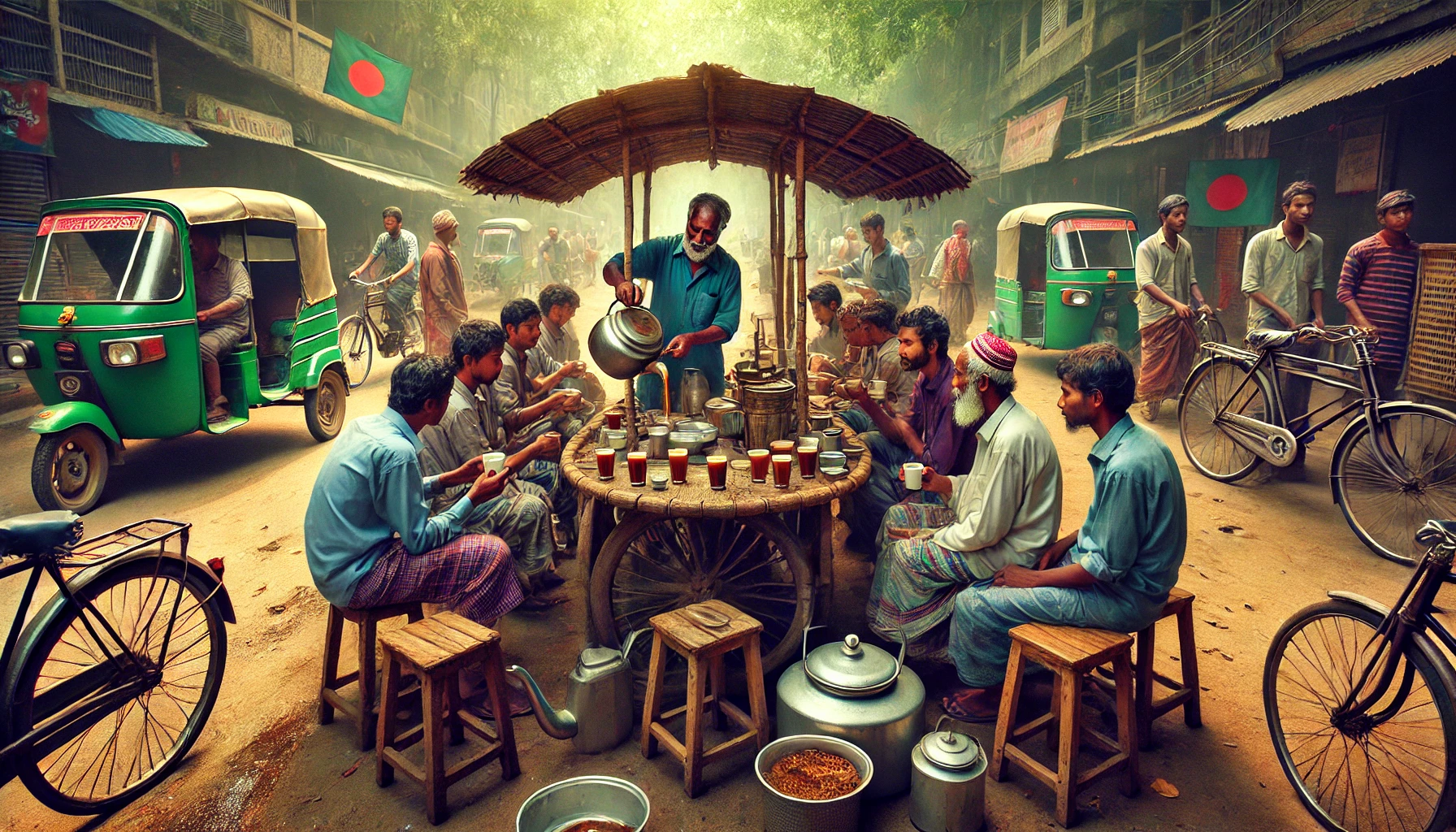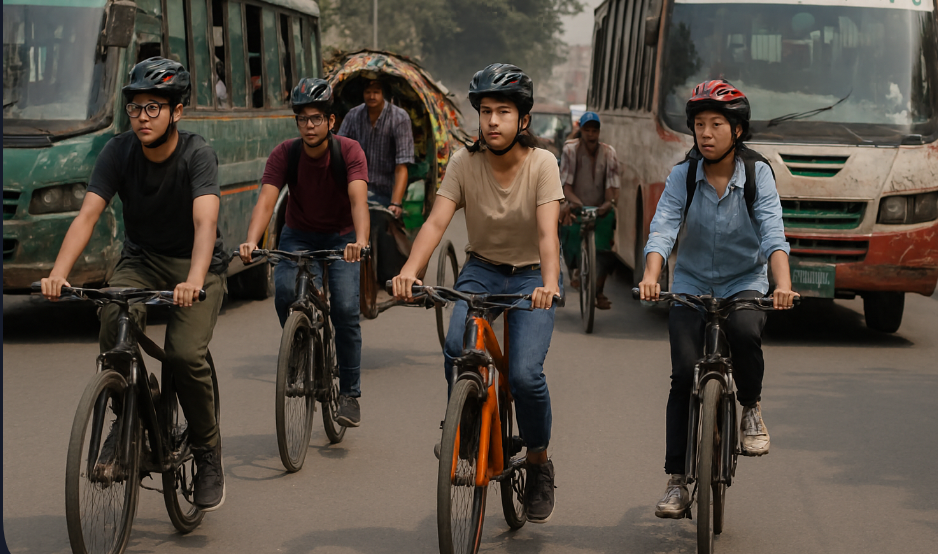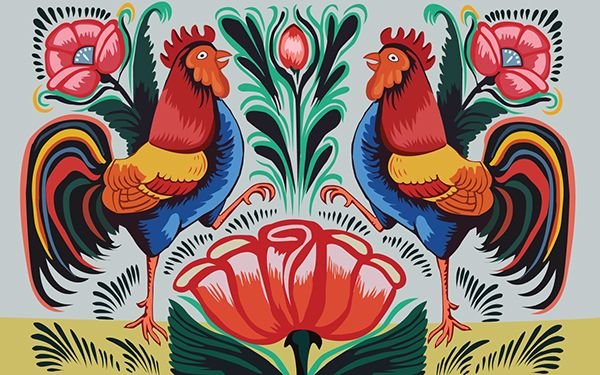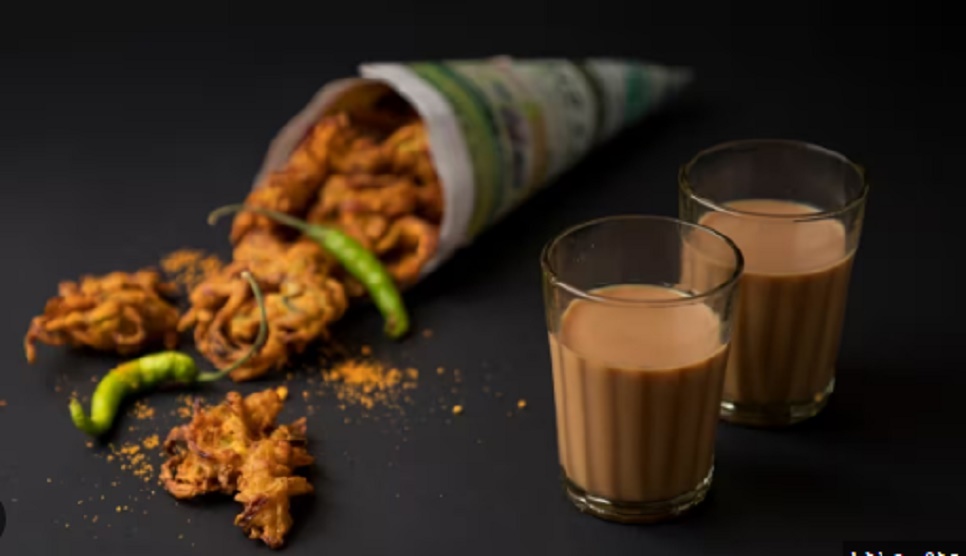Tong: The Heart of Bangladesh’s Tea and Street Culture

Tong: The Heart of Bangladesh’s Street Culture and Tea Tradition
Tea is not just a beverage in Bangladesh. It is a way of life. The Tong, a small roadside tea stall, is at the heart of this tea culture. These tiny shops are more than just businesses. They are essential parts of social life.
People from all backgrounds gather at Tongs. Some come to take a break from work. Others stop by to share news, discuss politics, or enjoy casual conversations. Tongs are where friendships form, ideas grow, and debates unfold.
But what makes these small tea stalls so special? Why do they continue to thrive despite modern alternatives? Let’s explore the history, culture, and significance of Tongs in Bangladesh.
A Brief History of Tong Culture
The Tong culture in Bangladesh has deep roots. Although tea was introduced to the region during British rule in the 19th century, the concept of roadside tea stalls emerged later.
Initially, tea vendors set up makeshift stalls near crowded areas. Markets, railway stations, and bus stops became popular locations. Vendors offered tea, betel leaf (paan), and light snacks to daily commuters and workers. Over time, these temporary stalls turned into permanent fixtures.
Today, Tongs are a symbol of community life. They reflect Bangladesh’s love for tea, conversation, and simple pleasures.
The Role of Tongs in Everyday Life
1. Gathering Places for All
A Tong is more than a shop; it is a social equalizer. Unlike cafés or restaurants, Tongs welcome everyone. Rickshaw pullers, students, professionals, and politicians all share space. It is a place where differences dissolve over a cup of tea.
People meet here daily. Some stop by on their way to work. Others take a break in the afternoon. It is a space where strangers become friends and conversations flow naturally.
2. Affordable and Accessible
One major reason for the Tong’s popularity is affordability. A cup of tea costs only a few takas. Unlike expensive cafés, Tongs provide an option that everyone can afford. They ensure that good tea and a friendly atmosphere are accessible to all.
3. The Irresistible Taste of Tong Tea
The secret to Tong tea lies in its preparation. Vendors use boiling milk, tea leaves, and sugar to create a rich, flavorful drink. Some add spices like ginger or cardamom for extra aroma.
The result is a strong, aromatic, and addictive tea. The longer brewing time enhances the taste, making it distinct from home-brewed tea.
Varieties of Tea and Snacks at Tongs
While tea remains the main attraction, Tongs offer an array of snacks and beverages.
Popular Tea Variations
- Dudh Cha (Milk Tea): The classic choice, made with strong tea, milk, and sugar.
- Lal Cha (Black Tea): A sugar-free, lighter tea often enjoyed after meals.
- Masala Cha: A fragrant blend infused with spices like ginger, cloves, and cardamom.
- Lebu Cha (Lemon Tea): A refreshing mix of black tea and fresh lemon juice.
Must-Try Snacks
- Shingara & Samosa: Crispy, fried pastries filled with spiced potatoes or meat.
- Puri & Dal Bhaji: Deep-fried bread served with flavorful lentil curry.
- Chop & Pakora: Spiced, deep-fried vegetable or meat fritters.
- Biscuit & Toast: Simple yet popular companions to tea.
The Social Importance of Tongs
1. Debate and Discussion Hubs
Tongs are not just about tea. They are also places for discussions. People talk about politics, sports, and daily events. It is common to hear passionate debates over a cup of tea.
Whether it is a recent cricket match or a political scandal, Tongs reflect the nation’s collective thoughts. These stalls serve as informal opinion forums, where ideas are exchanged freely.
2. Inspiration for Writers and Thinkers
Many Bangladeshi writers, poets, and journalists have spent hours at Tongs. They listen to everyday conversations, draw inspiration from them, and reflect these stories in their work. Some of the most profound literary and political ideas have been born in these modest stalls.
3. Strengthening Community Bonds
In the modern world, technology dominates communication. Social media and instant messaging have replaced face-to-face interactions. However, Tongs preserve the charm of real conversations. They bring neighbors, colleagues, and friends together.
Sitting at a Tong, sipping tea, and engaging in friendly banter is a timeless tradition. It strengthens bonds and keeps human connections alive.
Challenges Faced by Traditional Tongs
Despite their importance, Tongs face several challenges in today’s fast-changing world.
1. Rise of Modern Cafés and Coffee Shops
Trendy cafés and international coffee chains are gaining popularity, especially among the youth. Many prefer air-conditioned spaces, Wi-Fi, and fancy drinks over traditional Tongs. Social media trends have also contributed to the shift.
2. Urbanization and Rising Costs
As cities grow, rent and land prices are increasing. Many Tong owners struggle to keep their businesses running. Some are even forced to shut down due to urban development projects.
3. Hygiene and Safety Concerns
Most Tongs operate in open-air settings. Many lack proper sanitation and food safety measures. Health-conscious customers are often hesitant to visit due to concerns about cleanliness.
Adapting to Modern Times
To survive, Tongs are evolving. Some are blending tradition with modern elements.
1. Boutique-Style Tongs
Entrepreneurs have introduced boutique Tongs. These stalls maintain the Tong culture while offering a cleaner, more aesthetic experience. They attract younger customers without losing authenticity.
2. Online Tea Delivery
With the rise of food delivery apps, many Tongs now offer home delivery. Customers can enjoy their favorite Tong tea without leaving home.
3. Eco-Friendly Initiatives
Many Tongs are switching to eco-friendly practices. They use clay cups (kulhads) instead of plastic, reducing environmental impact.

Why You Must Experience a Tong
Visiting Bangladesh? A Tong experience is a must! Here’s why:
- Authentic Culture: Get a taste of Bangladesh’s true essence through a simple cup of tea.
- Affordable and Delicious: Enjoy great tea and snacks at an unbeatable price.
- Meet the Locals: Engage in spirited discussions with people from different walks of life.
- Capture the Atmosphere: The rustic charm of a Tong makes for great photography.
Preserving the Tong Culture
Tongs are more than just tea stalls. They are a cultural heritage that must be preserved. They represent community, conversation, and tradition.
However, modern trends and changing lifestyles pose challenges. To protect this tradition, local businesses, government initiatives, and customers must step up. Supporting Tongs ensures that this cherished part of Bangladeshi life continues.
So next time you pass by a Tong, stop for a cup of tea. Enjoy the moment. Become part of a timeless Bangladeshi tradition.
Share Your Tong Stories
Have you visited a Tong? Share your experiences in the comments below! If you plan to visit Bangladesh, make sure to try Tong tea and be part of this incredible culture.






